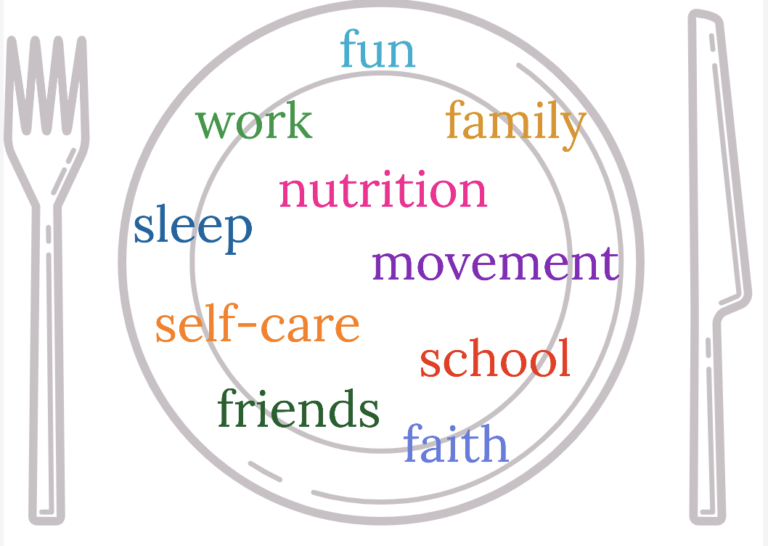Balancing Friendships
This topic requires its own dedicated post because balancing school and a job looks a little different than balancing school and relationships (and yes, work still remains a constant in this). Although navigating the balance between school, work, relationships, and all other obligations can be a challenge, with patience and practice, it is possible to achieve a more realistic and healthy life balance.
(This post leads with an emphasis on friendships and then transitions to a relevance on romantic relationships.)
The S.O.S
Time is often the limiting factor when in school, and because of this undeniable factor, having to say no to events, outings, and invitations sometimes becomes the first sacrifice. Saying no plays a part in what I call The S.O.S, The Sacrifices Of School.
An example of an S.O.S would be reconsidering the attendance of a midnight bonfire when you have an exam at 8am the next day; passing on movie theater outing because you worked all day and still have a 5 page paper that needs to be written; or it could be trading a ladies night for a study session with other classmates to discuss and review learning objectives and exam topics.
Although making sacrifices for school does eventually become inevitable, it’s also important to remember that being in school and having to say no to some social gatherings is temporary. The dedication to your studies will pay off in the long run, and you will thank yourself when you can cross that class off the list or walk away with a grade you can be proud of.
Saying the no for the short-term directly impacts the outcome of the long-term.
Part of finding the balance between relationships and schools is also understanding that it’s healthy to saying yes to events from time to time. It’s good to crawl out of the school hole, get outside, and socialize. In the times we do need to reply to the invitations with no, feelings of FOMO can surface. Sometimes we experience the fear that our friends won’t understand and abandon us. These feelings are valid, but this usually does not happen. Good friends are understanding and supportive of our academic journey.
In that same breath, friendships are a two-way street. Even if an invitation (or most invitations) is met with a polite decline, this does not mean we need to completely vanish from the face of the Earth. Remaining in touch with those in our circle essential to the vitality of the relationship.
Here are a few tips that can help with finding more balance between relationships and school.
Tip #1 Communicate
Think of communication like maintenance on your vehicle. If we want our vehicle to last and run optimally, it’s important to remain diligent about things like oil changes, tire rotations, inspection lights, and simply getting gas so as to not become empty and end up stranded. In the same way we need to continue the maintenance of our vehicle, we need to continue the maintenance of our friendships as a way to protect and preserve those relationships.
One example of relationship maintenance is simply making sure we check-in from time to time. This could be a quick coffee break or lunch together, scheduling a workout or walk in the park, making time for a phone call, or even texting and asking how they are doing. In the same way we desire support in our academics and lives, our friends have a similar desire too. Not only do the check-in’s make the other person feel special, but it maintains the health of the friendship.
Tip #2 Make a Schedule
Look ahead at your syllabus and schedule and see where you can fit in friends and fun. Be curious and ask yourself the question, is this schedule positively serving my life, or is this schedule causing added stress without the balance of relaxation and fun? With good intentions we make a schedule, but sometime the schedule ends up controlling us. Not only is it important to check in with our friends, it’s also important to check in with ourselves. The schedule does not need to be followed perfectly, but rather act as a guide that moves us closer to balance.
Tip #3 Work Ahead
Do you have a couple projects or assignments that can be finished early? This can allow for a little more free time and fun in between assignments. Working ahead is also helpful in the prevention of falling behind, especially if we have an unexpectedly busy week or we get sick. Working ahead can also help us achieve better grades because we can knock out those easier assignments and then focus on the more heavily weighted assignments such as group projects or exams.
Tip #4 The Plate Method
Imagine a plate and the various components on a plate. The components could include proteins, grains, fats, dairy, veggies/fruits, and dessert. Now imagine your life is a plate. School is just one component on that plate. This life-plate can have different components such as fun, friends, school, work, etc, but everyone can design their own plate depending on individual needs.
In addition to the various components on a life-plate, each component has its respective portion size. Think of the portion size as the amount of space or percentage it takes up on the plate. We might have the component of fun on our plate, but the portion size of fun might be 10% of our plate, while 20% is school, 30% is work, and 25% is relationships, and 15% self care. These aren’t exact numbers to follow, but the goal is to shed light on how we divide our time and how to use that information to strive for balance.
In the same way that all foods fit and that all things can be enjoyed in moderation, the same mindset can be applied to navigating relationships alongside our academics. It doesn’t need to be all or nothing, and it doesn’t need to be school or relationships, there does exist a delicate balance of school and relationships.

That’s a lot on the plate and that’s not even everything that can be listed.
If we are constantly working and studying and not saving space for self-care, sleep, and proper nutrition, burn out and sickness can ensue. What happens if we feel so stretched thin that it feels like nothing else can fit on our plate without it completely overwhelming us? It might be that we have too much on our plate.
How do we fix this?
It might be time to write down everything you have on your plate and see what isn’t serving you in a healthy way. The next step is working towards a rebalance, and sometimes that means decreasing the portion size of the component, or eliminating a component all together. Not only do we need the balance of having each component on our plate, but we also need to make sure there aren’t too many components.
Just know that it’s okay if this happens. It happens to all of us from time to time, especially when life gets really crazy and before you know it you have 100 things on your plate and no time to do any of it.
In some cases, the components on our plate may be few, but the portion size of that component might be dominating the plate completely and leaving little to no space for other components.
Balancing Romantic Relationships
Everything that was stated above is applicable to romantic relationships, however romantic relationships require an even deeper intentionality and priority due to the intricacy and intimacy that relationships bestow. Broadly speaking, saying no to invitations presented by friends can sometimes be much easier than saying no to the invitations presented by a significant other. There isn’t one blanket statement or answer I can provide for every situation because each situation is unique, and only you know your relationship and your responsibilities as a student. Romantic relationships are complex and layered, which is why communication is so important. Communication helps set the expectations and boundaries while expressing the thoughts and feelings from both parties.
Although I can’t speak to every relationship and every situation that will arise in these romantic relationships, I can provide my insight.
Tip #1 Set Boundaries
Often when we think of setting boundaries, we first think of its relevance to others, but setting boundaries is also applicable ourselves. Truthfully, setting boundaries with ourselves helps to pave the way to setting boundaries with others. Examples of setting boundaries with ourselves includes getting enough sleep each night; eating enough to fuel our body (and brain!); carving our time for some movement/exercise; and even managing how much screen time we allow ourselves each day. Setting boundaries with ourselves is a key step in upholding the balance on our life-plate.
Okay, so I know I need to set boundaries, but how do I uphold them?
- Set an alarm. If I know I need to be home by a certain time, I can set an alarm reminding me it’s time to leave.
- Communicate ahead of time. This could look something like, “I’ll be at your place by 5pm, but I need to leave by 8pm”. This provides clarity for your partner and helps keep you accountable.
- The “reward” system. Giving yourself permission to go out only as long as the assignment or studying is completed first. This can help as a self-motivating tactic.
Tip #2 Define Expectations
In addition setting self-boundaries, it’s important to have a conversation with your partner about the expectations you have and also the expectations they have in terms of spending time together while in school.
If one partner wants to have one date night once a week, but the other partner feels like defining a date night while in school isn’t something they can’t commit to, communicating and understanding each others expectations can help avoid potential conflict down the road. If expectations do not align, this opens the door to a discussion about finding the expectations each person can feel comfortable with.
Some helpful conversation topics to consider:
How much time would you like to spend together?
What can I do as a partner to support you?
What are your needs?
What does personal space and quiet time look like for you?
Are there any concern you have?
These are not one-sided questions, but questions meant to be asked to each other. These questions can be revisited and it’s okay if some re-defining of expectations needs to occur. The important thing is just to make sure each person is informed and both on the same page.
Final Thoughts
The common thread between balancing friendships and romanic relationships while in school is communication. Sharing thoughts, feelings, and needs is healthy in maintaining any type of relationship. School is a time where stress can surface, so it’s even more crucial to set expectations and boundaries early on. School is temporary, but the goal and hope of setting these boundaries and communicating is to allow these relationships to be long-lasting, or at least survive the durations of a semester. School is just one component on the life-plate. It’s healthy to socialize with our friends and/or partner. Part of achieving balance is carving out time for all the things in life that you enjoy. Just because you are in school does not mean your whole life needs to be put on hold. Those are unrealistic and rigid belief systems that can ultimately cause more harm than good, both mentally and physically. Be proud of the fact that you are in school and navigating the balance of school and relationships. It isn’t always easy, but it isn’t impossible.
One day, when you’re done with school, you can be the person who made it to the other side cheering the other person on, reminding them that you can do anything you set your mind to.
Happy Living,
Lauren

